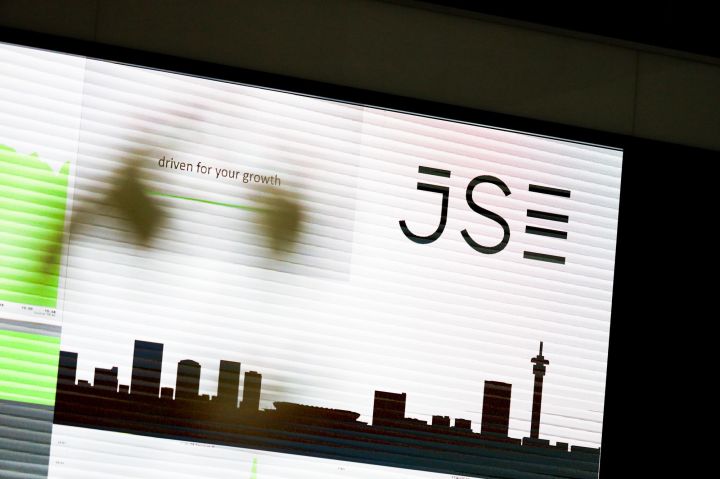AFTER THE BELL
Stop the Bleed: The JSE’s partial solution to its listings problem

The JSE is planning its biggest shake-up in a generation, and the reason is obvious: listings have all but dried up and trading volumes are slipping. The question is: will the changes proposed by the JSE have the desired result?
The JSE is an odd beast. By international standards, it’s huge compared to the size of the SA economy. Technically, the total market capitalisation of the JSE is about R25-trillion, compared to the GDP of South Africa, which is R4.5-trillion. If you just looked at that figure alone, you would think the JSE was rolling, but unfortunately, it’s somewhat a case of smoke and mirrors.
The main reason is that every time a huge international company buys a big South African company, the government insists it retains a listing on the JSE. So some very big companies that only conduct a small part of their business in SA — like Anheuser-Busch InBev — distort the figures.
But even if you remove the big international companies (and you should not remove them entirely), you still get to a market cap roughly equivalent to SA’s GDP. This proportion is much higher than that of most other countries; the total market capitalisation of companies on the Mexican exchange is about $450-billion, even though Mexico is roughly a $1-trillion economy. The JSE is an institution South Africans should be proud of: it’s big, it works and it’s world-class.
But recently, it’s been in trouble. Business Day reported that in 2001, about 600 companies were listed on the JSE. There are now fewer than 300; listings have been net negative for seven years. It’s been a slow but steady bleed — about 25 companies a year.
So what the JSE is planning to do is try to reduce costs for small and medium-sized companies, to make it cheaper to stay listed. So now there is going to be something called a Prime Segment and a General Segment, and the regulatory requirements for the General Segment are going to be “streamlined”, ie, made slacker.
That means reducing reporting requirements and removing fairness opinions for certain transactions, among many other things. This all makes sense and I like the idea in principle of giving shareholders ultimate responsibility rather than some regulatory system, which often means just providing advisers with a larger income stream for routine transactions. But there is a danger here: it will make takeovers in the General Segment a bit more Wild West.
The reform that caught my eye was that the proposals make it easier for companies to issue shares. Companies are going to love this, but shareholders not so much. Every capital raise dilutes existing shareholders and at the moment, the company has to ask permission from shareholders, who generally don’t like it. The measure slightly shifts the balance in favour of management, which will allow managers to raise money quickly if they want to expand, or to ask shareholders for a cash injection if they are in trouble. If shareholders don’t like it, they can always vote with their feet and sell the share.
So this is all good. But the question remains: is this the solution?
Three big changes
Frankly, I think it’s not, but it’s what the JSE can do, so it should do it. The solution requires three big changes.
The first is obvious: South Africa’s economy needs to start growing again. I don’t know how many times I have said this, but we can’t do much without economic growth. You can see this not only in the lack of listings but also in the JSE’s poor performance as an investment tool. The S&P 500 is up by 17% year-on-year and the All Share is down by 6.5% — that says a lot.
Second, SA needs to build more dynamism and entrepreneurship into the economy. One of the reasons the JSE is suffering from a listings point of view is that bigger countries will always have bigger companies and they will always be on the lookout for acquisition opportunities.
One of the reasons for the listings decline is simply that many very good South African companies have been bought by foreign companies, which from an economic point of view is broadly a good thing. It means the companies are doing something right and are desirable acquisitions. Whether it’s generally good for the country, employees and consumers is a different matter.
The way to solve this problem is not to stop foreign companies from buying local ones. It’s to encourage more local companies to grow and take the place of those departing the exchange.
This is related to the third issue: the extraordinary lack of mining listings. It’s incredible how the JSE, which has its roots in mining, has not had a significant mining listing for ages. SA’s mining companies are selling their local mines to exit the country. That is all about the government mining and energy policy, which characterised graphically, would constitute a country shooting itself in not one, but both feet. Repeatedly.
There is a fourth issue, which is complex, so I’m not sure how it gets fixed. One of the JSE’s problems is that it’s hugely top-heavy. These days, all stock markets are. We live in the era of the giga-corporation, after all. But SA’s problem is particularly acute: the top 20 companies constitute about 86% of the exchange’s total market cap.
Investment analyst Paul Miller has written in Daily Maverick about this. He suggests one of the problems is that SA’s very conservative financial regulatory environment has tended to push investors into collective investment schemes, which generally are expensive. About 90% of all savings in SA are managed by only 10 large institutions.
The problem here also has to do with criminality. Investors in SA worry about small companies because financial crimes in SA usually don’t get punished. Therefore, to hedge against this risk, investors tend to look for bigger stocks — although in the past that hasn’t been an entirely successful strategy. Hello Steinhoff.
But every incident of high-profile corporate shenanigans does encourage investors to take refuge in size, which is the exact opposite of what the country needs. You want the smaller companies to lead innovation and grow, which is often why small and medium-cap companies around the world are rated higher than the large, lumbering elephants.
Anyway, good luck to the JSE with its changes, but I’m telling you now, it’s not going to be enough. DM


















Comments - Please login in order to comment.